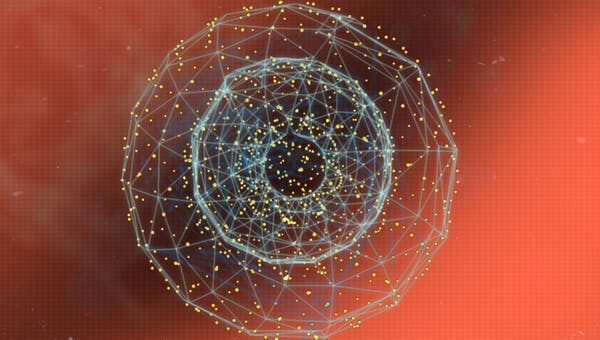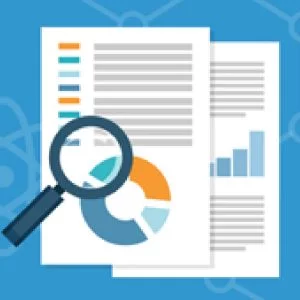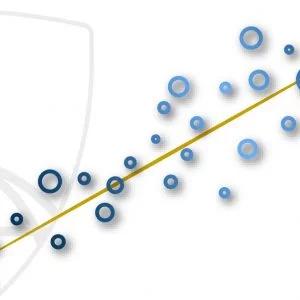
Discover the basic concepts of cluster analysis, and then study a set of typical clustering methodologies, algorithms, and applications. This includes partitioning methods such as k–means, hierarchical methods such as BIRCH, and density–based methods such as DBSCAN/OPTICS. Moreover, learn methods for clustering validation and evaluation of clustering quality. Finally, see examples of cluster analysis in applications. The University of Illinois at Urbana–Champaign is a world leader in research, teaching and public engagement, distinguished by the breadth of its programs, broad academic excellence, and internationally renowned faculty and alumni. Illinois serves the world by creating knowledge, preparing students for lives of impact, and finding solutions to critical societal needs.
Instructor Details
Courses : 3
Specification: Cluster Analysis in Data Mining
|
44 reviews for Cluster Analysis in Data Mining
Add a review Cancel reply
This site uses Akismet to reduce spam. Learn how your comment data is processed.

FREE







Aden G –
I am concerned about the last assignment of this course. And I cannot get any help from here.
Anubhav B –
The course is very insightful and very helpful for the data mining studies at university courses.
Christopher D –
Great course!
Martin L –
Just read the slide., The presentations add very little since the presenter is (stumbling) over just reading the text on the slides.
Lei Z –
too theoretical without enough practical quiz and assignment
Leela P –
Very useful and well taught
Yogesh S M –
Learnt More Here Than I Did At My College!!
aditya p –
good course!
Daniel B –
I have sat through 4 of the lessons and I am not very impressed. I fell that the topic is very interesting, but the professor does not do a very good job explaining the algorithms. It may be because I do no have the textbook, but overall a rather poor course. There need to be a little more explanation beyond the slides.
NACHO –
Redundant, poor explanations and a complete lack of examples about the general concepts and the foundations of this discipline. The interaction between the teacher and the slides is limited to a reading exercise that does not provide any add value at all. Very dissapointed and still wondering if this course is worth my attention and extremely limited time or not. Plenty of room for improvement.
AJETUNMOBI O –
Clustering demytified
Oren Z –
Very good
Hernan C V –
Awesome!
Valerie P –
E
Jose A E H –
This course along with the Reading material proposed will give you a big picture of how clustering algorithms work, as well as clustering validation methodologies. It is really useful if you are thinking about applying such algorithms and understanding the state of the art.
Gary C –
For some reason this course felt like it was hurriedly put together. At times the lectures were great, but many times a topic would literally be covered for seconds that would somehow become an involved quiz question. Now I don’t mind briefly covering topics, understanding that cluster analysis is a complex topic with many facets. However the quizzes should reflect the lectures. Overall the course felt more like speed dating, when it should be more about the fundamentals of dating.
geoffrey a –
Good, thorough coverage for a 4 week course of how to cluster. I liked the evaluation of clustering topic especially. Very few other instructors seem to discuss the vitally important evaluation of clustering results in any depth when they teach clustering. Dr. Han explained a comprehensive framework for understanding the effectiveness of any clustering system. I had never seen some of this material before, even though clustering was a topic appearing in a couple of other data science or machine learning courses that I have taken in the past. Ideally I would even wish to see this course extended to 6 or 8 weeks, so that case studies on difficult real datasets can be clustered. For example I had a terribly difficult ordeal last year before I took this course, trying to cluster the Kaggle.com dataset of the BOSCH competition. It has about 90% missing data in every row, and there are 2 million rows in total, and about 4500 columns! Kaggle’s BOSCH is a SUPER tough dataset to work with! I hope to come back to try the BOSCH dataset again using my new knowledge of clustering some time soon. The reason I chose to run unsupervised clustering on this BOSCH dataset, which is ostensibly intended for supervised learning, is to eliminate significant amounts of the missing data from being exposed to multiple individual supervised learning models by prior clever grouping of examples. I am still postulating to the current day that clustering and creating another unique supervised learning model for each cluster is the most important step to eliminating missing data in this particular problem.
shane –
Very detailed introduction of Clustering techniques.
Glushko O V –
Very informative lectures, wonderful assignments. This course isn’t so easy but it gives you real knowledge and useful experience.
Darren –
A very good course, it gives me a general idea of how clustering algorithm work.
Pavan G –
Explained with nice examples
Tanan K –
Very intense and required complex thinking and programming skill
Bernd –
Great course that provides a good overview of different clustering approaches and how to deploy them to various problems. I found the lecture material unclear or vague at times, so that for certain topics understanding heavily depends on one diving through the provided reading material (which I found very helpful). However, the topic of evaluation is very dense in the lectures and the provided book chapters do not provide relevant insights as well, making the programming assignment for this part quite challenging (at least if not already deeply familiar already with the concepts involved). Be ready to invest effort to make the most of this.
Alexandre M B –
My analysis is that the assessments do not match the depth of what is explained.
Vasco D S N C D –
Excellent overview of many clustering algorithms!
ADARSHPANDEY –
Course is very good I learnt about a lot of things related to clustering. Actually it is a very good introductory course in clustering compared to the resources available online in general. Although few things that I think might help improve the course i) Course only implements K Means which is a very simple algorithm, instead of this or in addition to this implementation of few advanced algorithms like DBSCAN or CHAMELEON should be added. ii) A no. of times prof only seems to be reading the slides which make things a little bit unclear i.e, the sentences used should be more common or explanatory rather than just reading the slides which the student itself can. Apart from these things I truly enjoyed and learned many new things. Thank you everyone involved in developing this course
zshowing –
The instructor basically reads the slides line by line, with very few examples.
GANG L –
This is a very good course covering all area of clustering. The only thing I feel a little struggle is some algorithm explained too brief, I prefer some detail step by step examples.
Srinath R M –
Gave a very good understanding of cluster analysis explaining all different methods and algorithms, the benefits and drawbacks of each. The tool ClusterEng looks very good and can help in a lot of situations. Thank so much
Steve S –
I feel like the programming assignments could’ve been more involved/tied to the clustering algorithms themselves, rather than just submitting a text file with results (e.g., maybe solve a practical problem with an algorithm of choice). Quizzes sometimes contained ambiguous and/or poorly written questions/answers. Some of the later lectures simply featured equations on a powerpoint and did not involve any examples on how to use them.
barbara –
This course is a great resource to learn about the different clustering algorithms out there. I need to solve a clustering problem in my research and my knowledge about clustering ended at kmeans. The course teaches systematic ways to find out whether you should be clustering your data in the first place, what clustering algorithm should be best for your data, and how to evaluate the goodness of the algorithm and the used parameters. Many unknown unknowns have been illuminated to me by the course.
Ian W –
Nice lecture. The programming assignment is difficult, more instructions could be provided.
Eric A S –
This was my favorite course in the whole specialization. Everything is explained very concisely and clearly making the subject matter very easy to understand.
PABLO P Q –
Nice. Good Course
Devender B –
Useful theory. It will be challenging for non math students. and also lecturer’s native language influence iis going to be challening as well to follow along.
VIDUSHI M –
Excellent!
KRUPAL J K –
VERY GOOD
vaseem a –
awesome
Venuu M V R –
The course helped me a lot. I loved this course
Umesh G –
Its Good but explanations can done much better, rest all good in terms of study material, quiz ,and programming assignment.
Vijayashri B –
Good course for understanding the Cluster Analysis & Algorithms, instructor is very experienced and well explained, thanks
prasanna k p –
it will be very helpful for understanding if any examples given with dummy data for cluster evaluation
Alexander S –
Good course. Some of the slides have value errors. Explanations for the programming assignments could be better.
Ankit –
Fantastic course